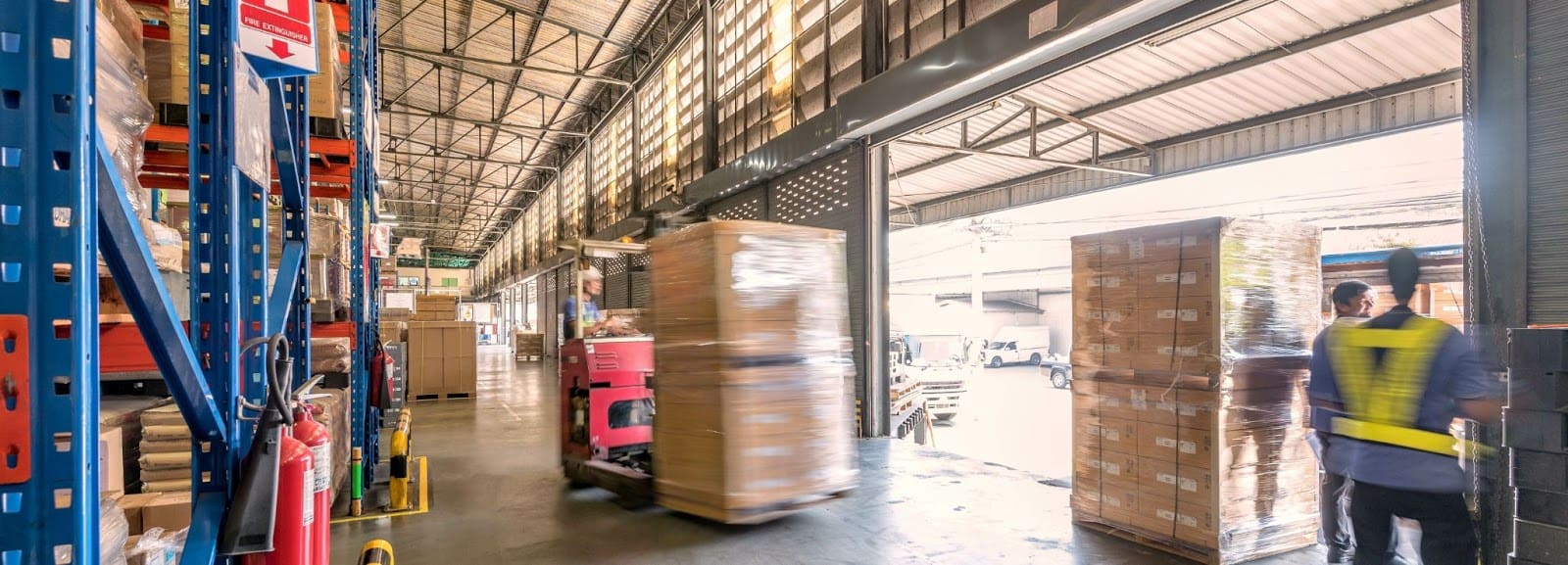Omnichannel logistics gives customers a unified delivery across all channels, whether in-store or online. Learn how merchants of all sizes can meet customer expectations regardless of the sales channel.
What Is Omnichannel Logistics?
Omnichannel logistics integrates anytime, anywhere dynamic delivery, fulfillment, and return options, giving shoppers in the business-to-everyone (B2E) age a unified experience across all touchpoints and sales channels. Put another way, a true omnichannel shopping experience expands beyond brick-and-mortar locations to online marketplaces, webrooming, no-line commerce, mobile browsing, and social media shopping. Sales are made across all channels simultaneously as personalized retargeting ads follow customers wherever they are online, increasing brand awareness and improving user engagement.
Ultimately, sales channels have become easier and easier to scale and can meet customers wherever they’re shopping. However, without having an omnichannel logistics solution can deliver your product where and how your customers want it delivered, you could be setting your customers up for a frustrating experience.
Mark Livingston, VP of worldwide sales and marketing at YBell Fitness learned this first-hand as he led the 4-in-1 hybrid piece of workout equipment into the direct to consumer (D2C) market. They were able to quickly build and launch an online store, but without a fulfillment partner that could meet consumers’ expectations for a seamless delivery experience they weren’t ready to launch into D2C sales.

Finding an Omnichannel Logistics Solution
The transformation to a fully streamlined omnichannel model that can meet consumers where they’re shopping and meet their delivery expectations is easier said than done, especially for SMB’s with smaller budgets. They see the future and want to implement an omnichannel logistics strategy that ensures faster delivery, reduced costs, and a better customer experience. But the operational pivot required to do so creates a new set of organizational challenges.
For this reason, more merchants are evolving from in-house fulfillment to partnering with a single outsourced fulfillment provider. Managing all sales channels through one fulfillment network reduces excess inventory carry costs and warehouse space. Further, big data provided through this relationship can be utilized to ramp up high performing sales channels and capitalize on seasonal trends and spending patterns.
Outsourcing fulfillment may be the most efficient and cost-effective way to streamline omnichannel logistics, but what is the best solution? How should sellers decide?
With a long list of outsourced fulfillment options to choose from, including traditional third-party logistics providers (3PLs) and on-demand warehousing solutions, knowing what to look for and which works best for your business can be overwhelming.
5 Omnichannel Logistics Challenges
1. Warehouse Inventory Visibility
Knowing the status of all inventory at all times is central to a strong omnichannel approach. Traditionally, sellers dedicated inventory by channel and had no or little cross-channel inventory visibility. Those days are gone.
Today’s customers expect inexpensive, 1-to-2-day shipping and the only way to provide that experience across all sales channels without risking a poor customer experience is by staying on top of the supply chain.
This includes implementing an efficient order fulfillment process synced with an optimized warehouse management system (WMS). This integrated system foresees future demand, allowing merchants to forecast supply chain activities and, eventually, sell orders online without ever having physical possession of the product.
Schedule a demo of Ware2Go’s industry-leading WMS
2. In Transit Inventory Tracking
Taking this a step further, sellers must have visibility into inventory in transit. Leading omnichannel logistics providers feature real-time freight visibility solutions into everything from trucks and shipments to stock-keeping units (SKUs) and orders.
This transit data can be incorporated with traffic, weather, and GPS information to improve the accuracy of last mile carrier tracking systems.
3. Reliable Order Fulfillment
Accurate inventory management allows omnichannel sellers to deliver on the promise of next-day and even same-day delivery. An unreliable fulfillment process leads to missing products and shipping delays, permanently damaging trust and deterring customers from conducting future business.
Further, reliable order fulfillment helps merchants reduce dimensional weight and use proper packaging procedures to reduce shipping costs.
4. Fast Shipping Speeds Nationwide
Cost and speed are both critical to online purchasing decisions. The latter is especially important to younger customers, with 36% of Gen-Z respondents naming same-day delivery as a top influence in their purchasing decisions in a 2018 E-Commerce Study.
To ship faster cost-efficiently in the omnichannel world, consolidation is needed across segmented distribution centers and private warehouses managed by multiple outsourced and in-house operators.
This approach includes understanding each warehouse and physical store location’s geographic coverage and how these locations align with key customer markets and shipping expectations now and tomorrow. For instance, shipping products from a local retail store reduces shipping fees and transportation costs, while improving shipping speeds compared to sending from a distribution center hundreds of miles away.
As shipping speeds become more influential to shopping preferences and 1-day shipping becomes standard, fulfillment providers must keep up without locking SMBs into cumbersome long-term service-level agreements (SLAs).
5. High Customer Acquisition and Fulfillment Costs
Outsourced fulfillment providers that truly understand the challenges of omnichannel SMB’s will address the business impact of optimized fulfillment and fast shipping. Data overwhelmingly shows that promising 1 to-2-day delivery in the upper funnel of the sales cycle increases conversions, revenue, and market share. The best providers will provide this intel in a cloud-based platform that learns sales patterns and offers customized distribution and inventory insight based on customer data.
How 4PL’s Enable Omnichannel Logistics
Fourth-party logistics providers (4PLs), which are essentially an interconnected network of third-party logistics providers (3PLs), solve all the challenges above by incorporating the roles of strategic consultant, IT provider, operations manager, and fulfillment director into one strategic partner.
They negotiate the best rates and SLAs with 3PLs to create a nationwide warehouse network, while employing a cloud-based WMS that gives visibility into inventory levels, operations, and service levels across these facilities. Lastly, 4PLs integrate with e-commerce platforms, such as BigCommerce and Shopify, and ERPs, including SAP and Oracle, for automated reporting on delivery statues and inventory levels.
Taking care of the heavy lifting, 4PLs typically reduce merchants’ supply chain and logistics costs, along with the operational burden of managing multiple fulfillment solutions. This frees up more time and money to spend on marketing, sourcing, R&D, and other areas that will grow their business.
Ultimately, YBell and several other fast-growing companies have partnered with 4PL Ware2Go to streamline their omnichannel logistics strategy. Ware2Go was created by UPS specifically to help businesses of all sizes – including SMBs – achieve a nationwide 2-day delivery footprint through a single partnership.
To learn more about how Ware2Go can help you streamline omnichannel logistics, please reach out to one of our shipping optimization experts.



